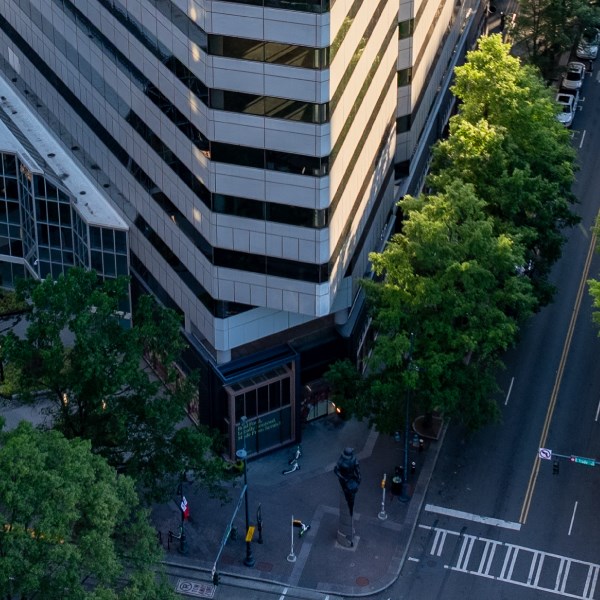Crescent Communities Recognized In Next Stage's 2021 Edition of The Social Good Report
Crescent Communities is honored to be profiled in the current edition of The Social Good Report: Profit & Purpose for our work with The River District in Charlotte, NC. The Social Good Report is an in-depth study compiled by Next Stage Consulting that examines the way businesses and nonprofits in the Queen City are constructing innovative partnerships aimed at community impact. In this report, The River District is highlighted as a case study and model for sustainable efforts in the chapter, “Design for a Sustainable Future.”
Excerpt from The Social Good Report: Profit & Purpose:
The River District is a 1,400-acre master-planned community currently under construction in northwest Charlotte, next to the Catawba River. Developed by Crescent Communities, the project was designed to feature an urban, walkable center while also honoring the agricultural roots and natural beauty of the area. “Developers generally do not have a reputation for innovation in terms of environmental stewardship,” acknowledged Lisa Richards, Crescent Communities’ Director of Stewardship. “But we believe it’s our responsibility to challenge that and to build beautiful spaces that respect the environment, foster community and make it easy for people to make healthy choices.”
Every element of the River District was intentionally designed around ten key areas of sustainability. The property features more than 500 acres of preserved green space, along with a highly walkable main street that will feature a mix of housing, retail, and civic uses. A small, sustainable farm and community marketplace will make it easier for residents to access local vendors. Community river access will enable residents to easily enjoy the area’s natural amenities.
For Crescent Communities, the planning process was inclusive and intentional.
“We had a clear vision for the type of property we wanted to build, but we knew we would need strong community partnerships to make the vision come to life,” said Richards. The company consulted with a host of local environmental nonprofits to make sure each community element would be sustainable.
“Clean Air Carolina and Catawba Riverkeeper are helping us monitor both air and river quality, and Discovery Place Nature will add educational components to the trail,” said Richards. “We have worked with the Catawba Lands Conservancy to place a conservation easement on more than 100 acres within the community, and with the Carolina Thread Trail and Tarheel Trailblazers to plan our walking and biking paths through the community.”
The company’s intentionality was not limited to environmental concerns. Early in the process, Crescent Communities engaged an affordable housing expert to ensure that units would be accessible to a range of incomes.
Crescent Communities made a commitment to be inclusive in their community trade base and to set goals for the public and private aspects of the project to be built with the engagement of Minority, Women, and Small Business Enterprise (MWSBE). Further, the company engaged the broader community to develop design, development, and programming goals early in the process. “This was another area that was really important for us to have authentic community input. We wanted to ensure a truly inclusive space for everyone who lives and works there.”
Crescent Communities has already aligned a portion of their volunteer and social impact efforts with the community. “Berryhill School serves the River District,” Richards explained. “Last year we hosted a cleanup day with 120 of our employees and we were able to plant trees, build raised bed gardens and spread mulch at the school.” The company plans to stay engaged well into the future by continuing to support school cleanups, educational plantings, and meaningful integration within the community to support lifelong learning.
“Crescent Communities wants our efforts to center on community engagement, rather than just community-building,” said Richards. “We want to ensure that our projects create spaces that support the sustainability of Mecklenburg County for the long term.”
View the full report here.




